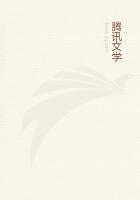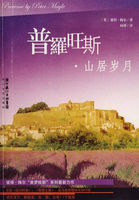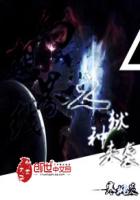Whatever be the content of our conception of an object, it is necessary to go beyond it, if we wish to predicate existence of the object.In the case of sensuous objects, this is attained by their connection according to empirical laws with some one of my perceptions; but there is no means of cognizing the existence of objects of pure thought, because it must be cognized completely a priori.But all our knowledge of existence (be it immediately by perception, or by inferences connecting some object with a perception)belongs entirely to the sphere of experience- which is in perfect unity with itself; and although an existence out of this sphere cannot be absolutely declared to be impossible, it is a hypothesis the truth of which we have no means of ascertaining.
The notion of a Supreme Being is in many respects a highly useful idea; but for the very reason that it is an idea, it is incapable of enlarging our cognition with regard to the existence of things.It is not even sufficient to instruct us as to the possibility of a being which we do not know to exist.The analytical criterion of possibility, which consists in the absence of contradiction in propositions, cannot be denied it.But the connection of real properties in a thing is a synthesis of the possibility of which an a priori judgement cannot be formed, because these realities are not presented to us specifically; and even if this were to happen, a judgement would still be impossible, because the criterion of the possibility of synthetical cognitions must be sought for in the world of experience, to which the object of an idea cannot belong.And thus the celebrated Leibnitz has utterly failed in his attempt to establish upon a priori grounds the possibility of this sublime ideal being.
The celebrated ontological or Cartesian argument for the existence of a Supreme Being is therefore insufficient; and we may as well hope to increase our stock of knowledge by the aid of mere ideas, as the merchant to augment his wealth by the addition of noughts to his cash account.
SECTION V.Of the Impossibility of a Cosmological Proof of the Existence of God.
It was by no means a natural course of proceeding, but, on the contrary, an invention entirely due to the subtlety of the schools, to attempt to draw from a mere idea a proof of the existence of an object corresponding to it.Such a course would never have been pursued, were it not for that need of reason which requires it to suppose the existence of a necessary being as a basis for the empirical regress, and that, as this necessity must be unconditioned and a priori, reason is bound to discover a conception which shall satisfy, if possible, this requirement, and enable us to attain to the a priori cognition of such a being.This conception was thought to be found in the idea of an ens realissimum, and thus this idea was employed for the attainment of a better defined knowledge of a necessary being, of the existence of which we were convinced, or persuaded, on other grounds.Thus reason was seduced from her natural courage; and, instead of concluding with the conception of an ens realissimum, an attempt was made to begin with it, for the purpose of inferring from it that idea of a necessary existence which it was in fact called in to complete.Thus arose that unfortunate ontological argument, which neither satisfies the healthy common sense of humanity, nor sustains the scientific examination of the philosopher.
The cosmological proof, which we are about to examine, retains the connection between absolute necessity and the highest reality; but, instead of reasoning from this highest reality to a necessary existence, like the preceding argument, it concludes from the given.
unconditioned necessity of some being its unlimited reality.The track it pursues, whether rational or sophistical, is at least natural, and not only goes far to persuade the common understanding, but shows itself deserving of respect from the speculative intellect;while it contains, at the same time, the outlines of all the arguments employed in natural theology- arguments which always have been, and still will be, in use and authority.These, however adorned, and hid under whatever embellishments of rhetoric and sentiment, are at bottom identical with the arguments we are at present to discuss.This proof, termed by Leibnitz the argumentum a contingentia mundi, I shall now lay before the reader, and subject to a strict examination.
It is framed in the following manner: If something exists, an absolutely necessary being must likewise exist.Now I, at least, exist.Consequently, there exists an absolutely necessary being.The minor contains an experience, the major reasons from a general experience to the existence of a necessary being.* Thus this argument really begins at experience, and is not completely a priori, or ontological.The object of all possible experience being the world, it is called the cosmological proof.It contains no reference to any peculiar property of sensuous objects, by which this world of sense might be distinguished from other possible worlds;and in this respect it differs from the physico-theological proof, which is based upon the consideration of the peculiar constitution of our sensuous world.
*This inference is too well known to require more detailed discussion.It is based upon the spurious transcendental law of causality, that everything which is contingent has a cause, which, if itself contingent, must also have a cause; and so on, till the series of subordinated causes must end with an absolutely necessary cause, without which it would not possess completeness.















